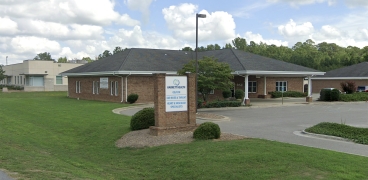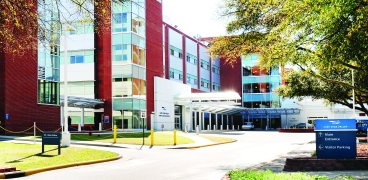Welcome to a new beginning for your heart. Valve replacement repairs heart valves that don't open or close correctly, helping you breathe and live better.
Types of Heart Valve Replacement at Cape Fear Valley Health
Valve replacement is a surgery to replace a damaged heart valve. It's used when valves are too tight or leaky.
The surgery involves removing the faulty valve and putting in a new one. This helps your heart pump blood correctly again. It can relieve symptoms such as shortness of breath and swelling.
There are different types of replacement valves, and your doctor will choose the best type for you. This procedure aims to improve your heart health and quality of life.
Heart valve replacement can be performed using two main types of prosthetic valves:
Mechanical valves: Made from durable materials such as titanium or carbon, mechanical valves are long-lasting and typically require lifelong blood-thinning medication to prevent clots.
Biological valves: These are made from animal tissue, like pig or cow, or from human donor tissue. They tend to wear out faster than mechanical valves but usually don't require long-term blood thinners.
It can also be performed using two different types of surgery:
TAVR (transcatheter aortic valve replacement) is a less invasive option for replacing aortic valves. It's often used for patients who are at high risk for open-heart surgery. During TAVR, a new valve is inserted via a catheter through a small incision in the leg and guided to the heart. The new valve is expanded and takes over the job of the old valve, which doesn't need to be removed. This procedure can be quicker to recover from than traditional surgery and is becoming a common choice for aortic valve replacement
SAVR (surgical aortic valve replacement) is a traditional open-heart surgery procedure used to replace a diseased aortic valve. It involves making an incision in the chest to directly access the heart, removing the diseased valve, and sewing a new valve into place This new valve can be either mechanical or biological. SAVR has a long history of effectiveness and is typically recommended for patients who are at low or intermediate risk for surgical complications
Am I a Candidate for Heart Valve Replacement?
A cardiologist and cardiac surgeon will conduct a comprehensive evaluation to determine whether you’re a candidate for a valve replacement. They will consider your overall health, the severity of the valve disease and the risks of surgery. In general, good candidates for heart valve replacement typically include:
- Patients with significant valve stenosis or regurgitation that medication can't manage effectively
- Individuals experiencing symptoms such as shortness of breath, angina, lightheadedness or irregular heartbeat due to valve disease
- Patients with valves that are too damaged for repair and replacement is the only viable option





